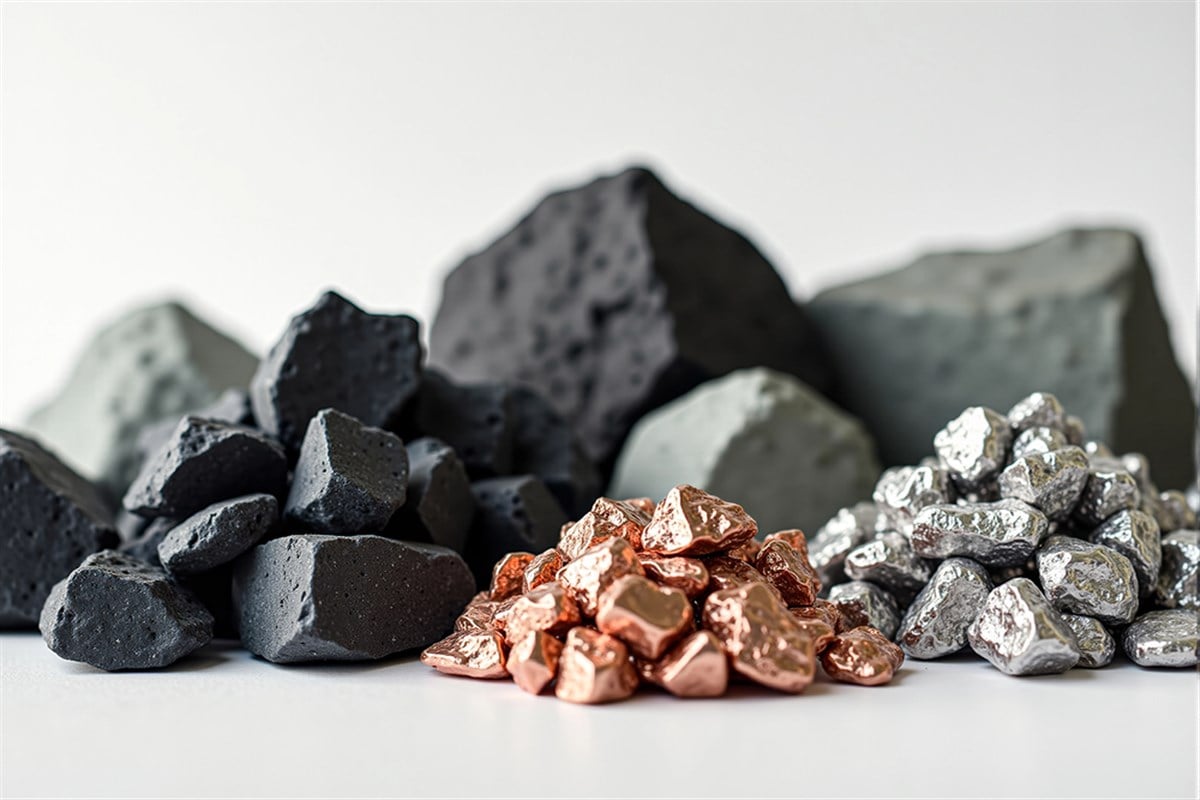
In a tit-for-tat retaliation for President Biden’s export controls on 24 types of chip manufacturing equipment, high bandwidth memory, and chip software tools, China banned certain rare earth mineral exports to the United States on Dec. 3, 2024. The ban includes critical rare earth elements such as germanium, gallium, antimony, and superhard materials, with a stricter review of graphite in the interest of national security. The potential impact on the computer & technology sector and the aerospace sector could be problematic.
Computer Chips, Solar Panels, Electric Vehicles, Ammunition and Fiber Optics Impacted
Germanium is used in semiconductors, solar cells, fiber optic cables, and infrared technology. Gallium is used in semiconductors. Antimony is used in ammunition and other weapons, while graphite is used in electric vehicles (EVs). Graphite is the largest component by volume in EVs. Both countries are trying to blunt the other’s advancement in AI and military weapons. China being the largest producer of rare earth minerals is why the United States is trying to grow its supply chain. Here are three stocks that are benefactors of the China ban on rare earth materials.
MP Materials: America’s Only Rare Earth Elements Mining and Processing Site
So far, there is only one active and operating rare earth mining and processing site in the United States, and it is owned and operated by MP Materials Co. MP. The Mountain Pass mine in California is currently the only active rare earth mine in the country.
MP extracts rare earth ore from Mountain Pass to separate and process it to produce rare earth oxides and concentrates. The China ban just elevated their importance in America's mission to create its supply chain of domestic rare earth elements. It limits competition and boosts demand for the company. It also helps to secure more government contracts and investments for potential expansion.
Mountain Pass Doesn’t Produce All 17 Rare Earth Elements
While Mountain Pass is a significant source of rare earth elements, it doesn’t produce all 17 rare earth elements. Mountain Pass primarily produces:
- Neodymium is used in magnets, turbines, lasers, hard disc drives, lasers and EVs
- Praseodymium is used in magnets, lasers, cryogenic refrigerants, and lighting
- Lanthanum is used in rechargeable batteries, hydrogen storage, and catalysts
- Cerium is used in catalytic converters, lighter flints, and polishing compounds
Other rare earths in small quantities include samarium, europium, and gadolinium.
Other Sources for the United States
As for gallium, germanium, and antimony, the United States has sources outside of China. Germanium and gallium are from Japan, South Korea, Kazakhstan, Germany, Finland, and Canada. Antimony from Bolivia, South Africa, Tajikistan, and Russia. It’s also worth noting that chip producer Taiwan Semiconductor Manufacturing Co. Ltd. TSM is not (yet) impacted by the rare earth minerals ban, so the impact on chip companies in the United States has been limited so far. Chip companies that outsource production to Taiwan Semi, like NVIDIA Co. NVDA, Advanced Micro Devices Inc. AMD, and Broadcom Inc. AVGO, are still in the clear.
American Battery: Salvaging Rare Earth Elements
Based in Reno, Nevada, American Battery Technology Co. ABAT is a battery materials company that explores and develops lithium-rich sedimentary resources in Nevada and California.
While the company doesn’t mine rare earth elements, it has developed a hydrometallurgical process for recycling end-of-life lithium-ion batteries and manufacturing scrap to recover materials like manganese, nickel, lithium, and cobalt.
Why is that important?
The Next Tit-For-Tat May Be Devastating
While the latest ban on rare earth exports to the United States is problematic, an escalation of China’s bans on critical minerals to cobalt or nickel would be devastating. American Battery is a U.S.-based supplier of battery materials. Its recycling of dead lithium-ion batteries to salvage cobalt, nickel, and lithium is conducive to helping build America's supply chain.
A Low-Priced Speculative Bet
While the story is compelling, the reality is that American Battery is still in the pre-revenue stage, losing money, issuing debt and convertibles, and generating under $1 million in annual revenue. The company was awarded a U.S. Department of Energy (DOE) grant on Sept. 23, 2024, securing $150 million for the construction of a second lithium-ion recycling facility. The underlying theme here is lithium-ion battery resource recycling.
REMX: Track and Trade Rare Earths With an ETF
The VanEck Rare Earth/Strategic Metals ETF REMX is a tangible way to track, invest in, and trade the rare earths market.
The ETF tracks an index of global rare earth elements exploration, mining, and production companies. REMX has $229.05 million in assets under management (AUM).
The daily average trading volume is around 269,000 shares. It lost 23% in 2024 but is up 3.28% year-to-date (YTD) as of Jan. 10, 2025, and it pays a 2.95% annual dividend yield.
The article "3 Stocks to Benefit From China's Rare Earth Export Ban on U.S." first appeared on MarketBeat.
© 2025 Benzinga.com. Benzinga does not provide investment advice. All rights reserved.
Trade confidently with insights and alerts from analyst ratings, free reports and breaking news that affects the stocks you care about.